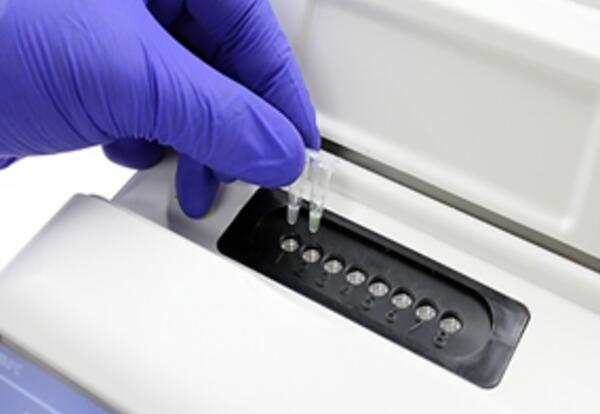Agdia, Inc. has announced an expanded field of use for their AmplifyRP® isothermal amplification technology that now allows detection of genetically modified traits and native plant genes.
AmplifyRP® employs recombinase polymerase amplification (RPA), an isothermal amplification technology first introduced in 2006, that provides target sensitivity and specificity comparable to that achieved with polymerase chain reaction (PCR). Since 2010, Agdia has been developing plant pathogen detection assays on the AmplifyRP® platform. Their products are marketed as AmplifyRP® XRT and AmplifyRP® Acceler8®, and include assays for detection of Xylella fastidiosa, Clavibacter sepedonicus, Plum pox virus and Candidatus Liberibacter asiaticus, in plant tissue. When paired with Agdia’s AmpliFire® isothermal fluorometer (Figure 1.), AmplifyRP® is a rapid, user-friendly system that can be implemented in the field or the lab by personnel with limited experience in molecular diagnostics.

The expanded utility of AmplifyRP® allows Agdia to increase their product offerings for the testing of genetically modified plants and plant products. Currently, Agdia’s products for this market are limited to serological platforms such as ELISA and ImmunoStrip®. In addition to this market expansion, Agdia considers pursuing new markets, such as plant species identification at seed and seedling stages of development.
“This is an exciting step forward in our continued effort to bring simple and accurate molecular testing solutions to our customers. We believe our experiences and successes in development of isothermal plant pathogen assays will provide a seamless path for detection of plant genes. We look forward to exploring new opportunities and helping our present and future clients realize the benefits this technology can bring to the table,” said Albert Vrient, Chief Operating Officer, Agdia, Inc.
For more information: Agdia
Agdia
